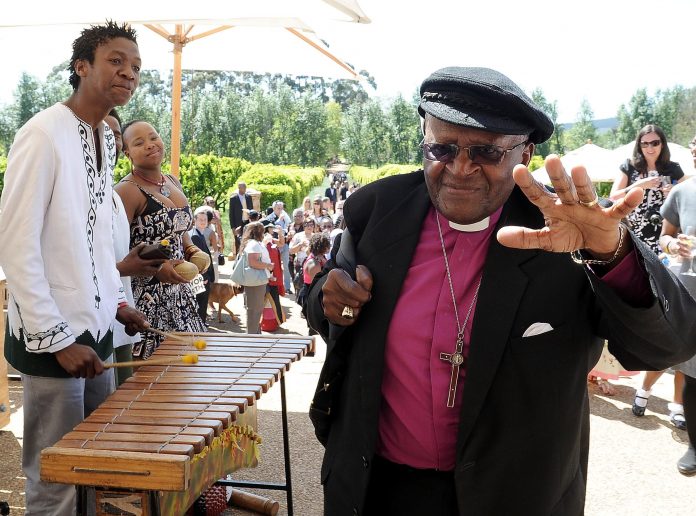Johannesburg – In death, Archbishop Desmond Tutu name has gained a new power even beyond that which it achieved in life.
Feeble attempts by his detractors to hijack and misconstrue his legacy and moral standing at the eleventh hour will fall flat as his acclaim both in South Africa remains unbroken.
Tutu was a profoundly good man – a standard bearer of virtue and loyalty to one’s conscience.
He also exhibited traits few of our leaders master – the human touch and ability to empathize with others.
One of my most vivid and perhaps poignant memories of Archbishop Tutu was the sight of him breaking down in tears at the Truth and Reconciliation Commission (TRC), which he chaired.
The sight of this great South African whom legions of people around the world held in high esteem crying shaped my own evolution as a man – it is ok for a man to cry when moved by pain or injustice.
Very few South Africans will forget Tutu’s tears as he listened to the harrowing testimony of Singqokwana Malgas, an elderly former ANC guerrilla crippled by police torture.
Malgas was jailed at the notorious Robben Island jail for 14 years in the early 1960s.
His testimony, in a moving way, enveloped the terror Apartheid visited on many black South Africans.
He said repeated police assaults and torture had resulted in epilepsy and a stroke that impairs his speech.
Tutu was a genuine man who detested injustice and was in touch with his feelings.
In a country of deceitful men, mismanaging public resources, Tutu remains the voice of reason – even in death.
He mastered the art very few have the courage to do – telling the truth – no matter who it left angry and frustrated.
Historians will keep his name from being forgotten, for a few decades at least, or longer if history is written properly.
Tutu reminded the world time and time again that in a just society, truth matters.
He spoke the truth to the ruthless Apartheid regime and did the same to the post-democracy regimes.
He kept fidelity to the truth even when looking away would have been a safer option.
These are qualities South Africa is in short of today.
Like all men, Tutu could not live forever.
What is left is for his countrymen of good conscience to do is take the baton and stand on the side of truth and defeat the monster of corruption and unethical leadership that has become the norm in our democracy.
We owe a debt of respect to the man who challenged not only the dominant forces around him but also his own background.
The work began by Tutu and his contemporaries at the TRC remain unfinished.
Too many of the Apartheid killers remain free and are allowed to die in peace – a privilege they denied to their victims.
The cases heard before the TRC and the ones that never made it to the front pages of our newspapers need to be finalised and true justice meted out.
Our country will not see true reconciliation until the economic imbalances down colour lines are decisively dealt with.
A new crop of leaders must emerge from the comfort of the shadows of Tutu and his generations and speak the truth of the day to leaders who have abandoned the truth in pursuit of selfish ends.
Tutu’s wish for a rainbow must be realised, founded on equality and equal economic participation.
Tutu is a moral giant we should treasure.
His life was worth a thousand lives.
Khumalo is Sunday World’s associate editor.
Also read: Archbishop Desmond Tutu has passed away
Read Desmond Tutu’s iconic speech from 2004 Nelson Mandela Lecture
Look: South Africans saddened by the death of Archbishop Tutu
Desmond and Leah Tutu Foundation shares message after death of icon
Ramaphosa congratulates Archbishop Desmond Tutu on his 90th birthday
To read more political news and views, click here.
Follow @SundayWorldZA on Twitter and @sundayworldza on Instagram, or like our Facebook Page, Sunday World, by clicking here for the latest breaking news in South Africa. To Subscribe to Sunday World, click here.




